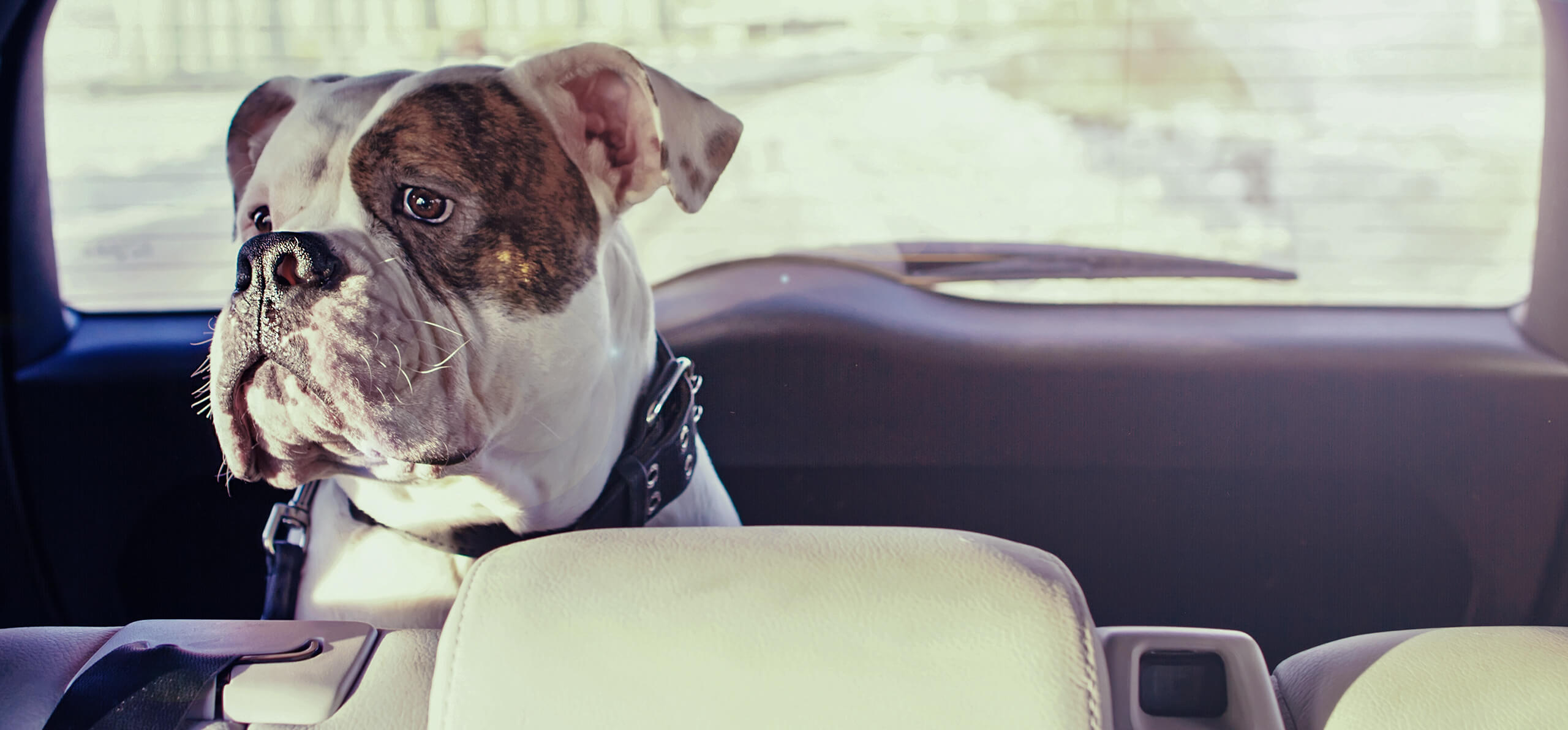Sure, the sun is shining and it’s about 80 degrees, but it’ll only be a few minutes, so there’s no harm in leaving your best pal in the car, right?
The correct answer is no: You never leave your dog in a car on a warm day. But, like most busy pet parents, you may be pressed for time and think that surely it’s okay to leave him for just a few minutes.
If that temptation pops into your mind, it’s worth remembering how detrimental heat can be to our furry loved ones.
Parked Cars Become Ovens
Cars magnify heat. When you step into your parked car on a hot day, the steering wheel and the seat feel like they’ve just emerged from an oven. This uncomfortable greenhouse effect can happen even when it’s cooler outside.
On a 75-degree day, the inside of a parked car can climb to 110 degrees in minutes. In 20 minutes on a 90-degree day, the same car can get up to 130 degrees inside. Although we humans can sweat and regulate our body temperatures, this extreme heat can still be deadly, especially for infants and toddlers. Dogs have a harder time adjusting to heat than most humans, so being stuck in a hot car can quickly become life threatening.
When the temperature rises, dogs will try to cool off by panting, and their anxiety level will likely rise in relation to their discomfort. After all, imagine wearing a fur coat in a small, 100-degree room, not knowing where you are or where your friends are. Panic can easily set in, making matters worse.
Even if certain dogs seem to tolerate warmer temperatures, they may still suffer anxiety when left alone in a car.
Open Window Myth
Some people crack the car windows open, thinking this will relieve any issues their furry family member has.
However, an American Academy of Pediatrics’ study found: “In terms of heat-rise over time, it makes very little difference whether a car’s windows are closed or partially open. In both cases, a car’s interior temperature can rise approximately 40 degrees within one hour, even when the exterior temperature is only 72 degrees.”
Watch for heatstroke
Heatstroke is the main danger that plagues dogs in hot cars, and it can happen within 15 minutes. Canines that are either older or very young, as well as those with health problems, are more likely to succumb to heatstroke than dogs in prime health.
The first sign of heatstroke is restlessness and discomfort. In addition to panting, your dog may have trouble breathing and start to cry or bark for help. Confusion and disorientation set in. As these neurological effects start, it’s critical to get your best pal to the veterinarian as quickly as possible. Once lethargy takes over, it may be too late for your dog to recover.
Always remember, when it’s warm outside and you need to go someplace that’s not pet-friendly, let your pal enjoy all the cooler comforts of home.

